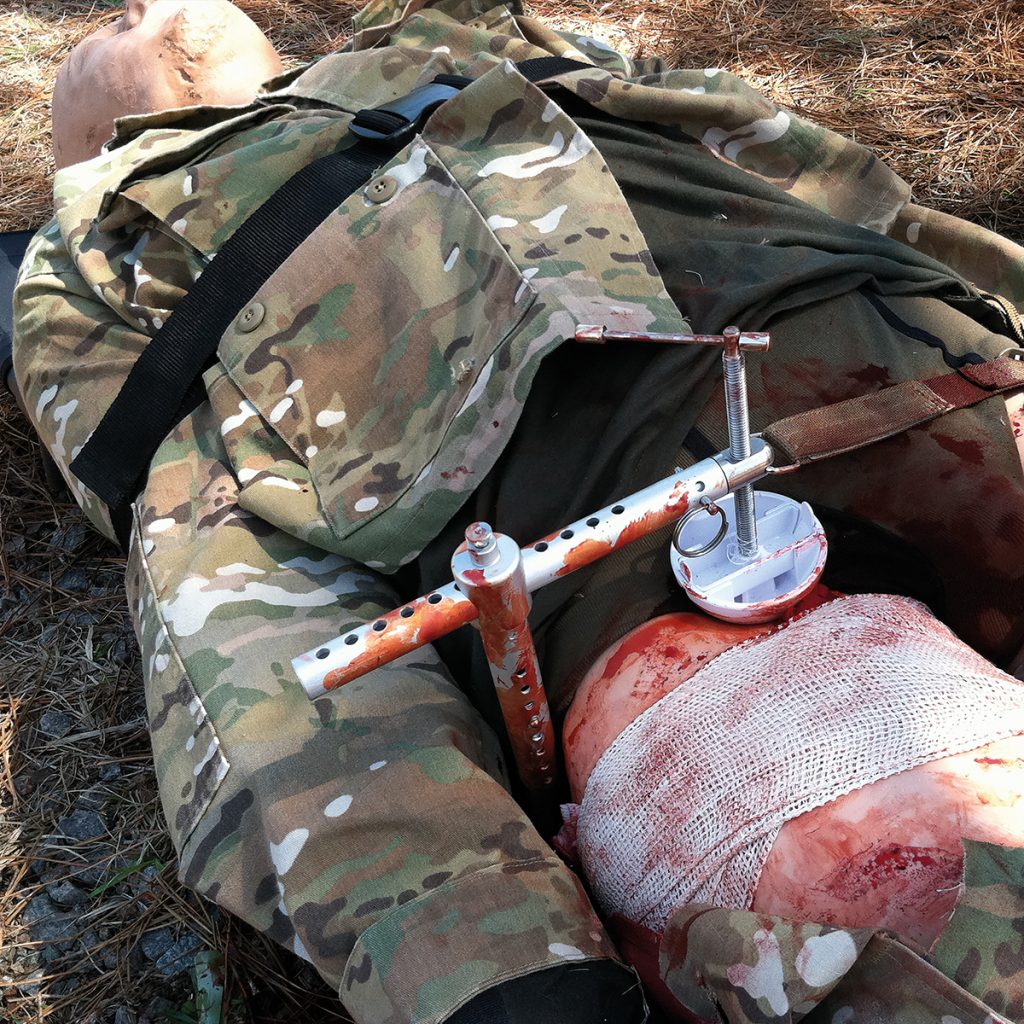
Description
Complete simulator with major vascular injuries to enhance Tactical Combat Casualty Care (TCCC) training
The full body Tactical Casualty Care Simulator 2 (TCCS 2) offers military, government forces, medical rescue, and private security the opportunity to realistically train combat trauma care for major vascular injuries using common wound patterns found in combat casualties.
Tactical Combat Casualty Care training can get rough and this trauma simulator was built to last even under the toughest training scenarios. It is highly ruggedized and water resistant and can be used both outdoors in battlefield training and indoors in classroom settings:
- Simulates combat trauma injuries and major vascular injuries for training of hemorrhage management and airway control with life-like tissue
- Full-body simulator, realistic size and weight (1,93 m/ 6’4″ and 84 kg/ 185lb) with fully articulating limbs for high threat extraction training
- Simple to operate, fully mobile and remotely controlled for realistic TCCC field training scenarios
- Easy-to-use instructor interface tablet with simulation logs and self-diagnosis
- Remote controlled (up to 48 m/ 52 yards distance): respiratory and heart rate, pulsating bleeding and arterial hemorrhage with 11 l (3-gallon) blood reservoir
Use the TCCS 2 to simulate combat trauma scenarios featuring injuries from an IED (improvised explosive device) attack followed by an ambush. Prehospital patient care in combat scenarios focuses on fast solutions for hemorrhage control, wound management, and airway stabilization.
The TCCS 2 offers the following training scenarios for combat casualty care management:
| Tactical Combat Casualty Care Simulation | |||
| Included Standard TCCC Simulation Features | |||
| Major Vascular Injury | Hemorrhage Management | Airway Management | Breathing and Circulation |
| Shrapnel injury to neck causing major vascular injury |
Bleeding control via elevation, pressure points and kneedropping method |
Insertion of nasal & oral pharyngeal airways | Bilateral and independent chest excursion |
| Oblique through-and-through gunshot wound to right groin above tourniquet line | Apply tourniquets to control mas-sive hemorrhage (CAT, junctional) | Advanced foreign body removal | Midclavicular and midaxillary needle decompression for tension pneumothorax |
| Gunshot wound to left thigh | Effective drop knee technique | Suction of the airway | Humeral and sternal intraosseous infusion |
| Open tibia/ fibula fracture | Multiple and independent bleeding sites | Perform intubation (King LT and I-Gel) | Respiratory distress |
| Through and through wounds | External ventilation (Bag Valve Mask) | Carotid and radial pulses | |
| Wound packing for severely bleeding wounds | Cricotherotomy | ||
The Tactical Casualty Care Simulator 2 is delivered with:
- Two-way communication headset, range up to 91 m/ 100 yards
- Instructor Control Interface Tablet and Case, Software and License
- Rugged Carry Case
- 3,8 l (1 gal) concentrated, simulated blood (antimicrobial, antifungal, antifreeze)
- 2 x rechargeable batteries 18V 12A hour lithium-ion, (electrical input 110V)
Watch the demo video to see TCCC training with a Tactical Casualty Care Simulator:
Choose your wound configuration with the following TCCS feature comparison
All Tactical Combat Casualty Care simulators include the standard features (hemorrhage management, airway management, and advanced trauma life support), plus these specific combat wound configurations:
| Additional Wound Configurations of Tactical Casualty Care Simulators | ||||
| TCCS 1: | TCCS 2: | TCCS 3: | TCCS 4: | TCCS 5: |
| Gunshot Wound Management | Major Vascular Injury | Traumatic Amputation Injuries | Multiple Traumatic Gunshot Wound and Amputation Injuries | Abdominal Wounds with Evisceration |
| 1021380 | 1021381 | 1021382 | 1021383 | 1021384 |
| Gunshot wound to the face causing hemic drowning | Shrapnel injury to neck causing major vascular injury | Traumatic amputations above left elbow, above left knee, and at upper right thigh above tourniquet line | Traumatic amputation above the left elbow and the left knee | Open abdominal wound with evisceration |
| Gunshot wound to left upper arm | Oblique through-and-through gunshot wound to right groin above tourniquet line | Burn, blast and fragment wounds on left side of body | Fragmentation wounds to left side of the body | Traumatic amputation above right wrist |
| Fragment wounds to the left chest | Gunshot wound to left thigh | _ | Sucking chest wound (i.e. open pneumothorax) | Deep avulsion of the posterior proximal right thigh |
| _ | Open tibia/ fibula fracture | _ | Burns to the left side of the face | _ |
Watch Mick Navin, CEO of Operative Experience, Inc. on TV using the TCCS to explain hemorrhage control techniques for “Stop the Bleed” day:

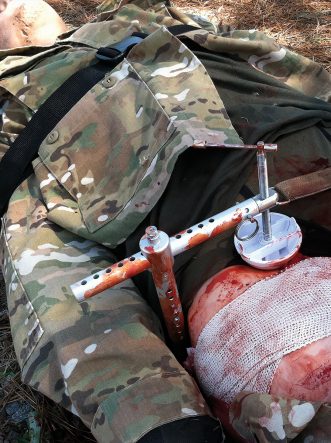
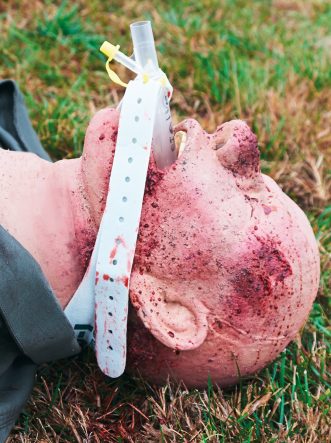
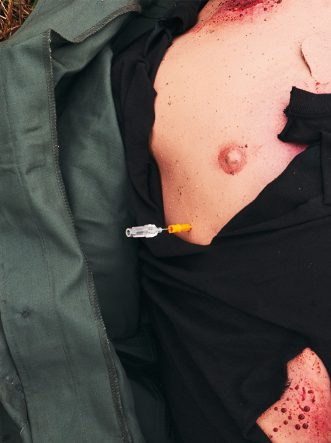
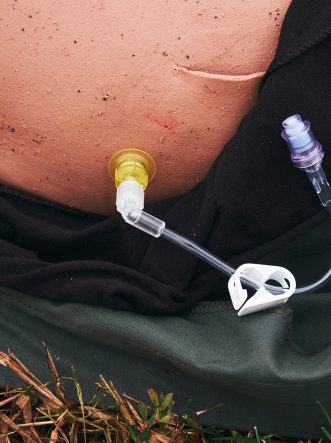
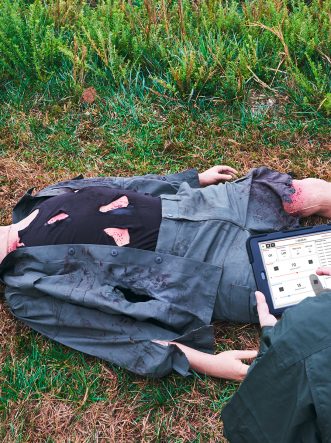
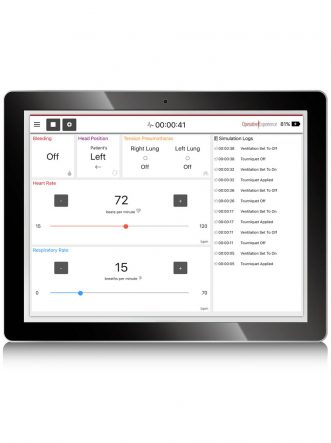
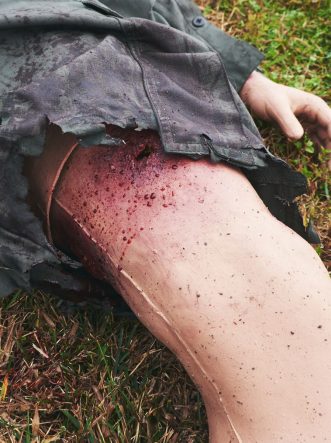
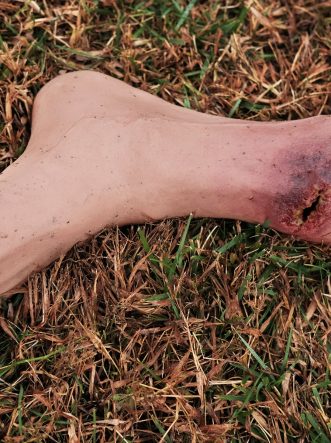
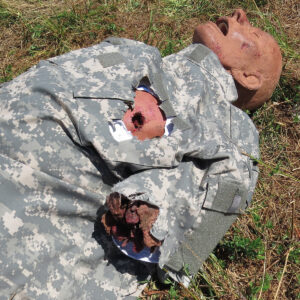
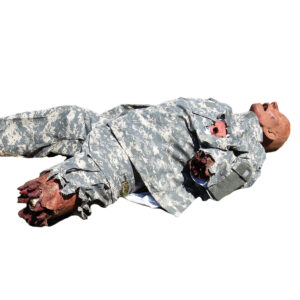
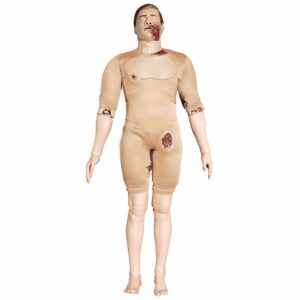
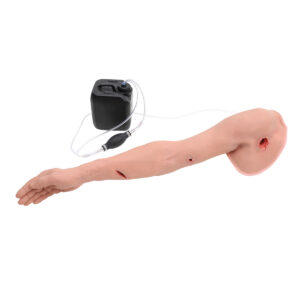
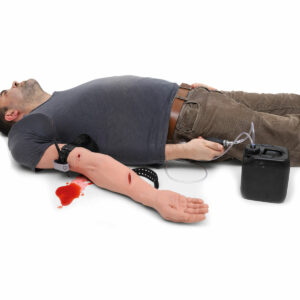
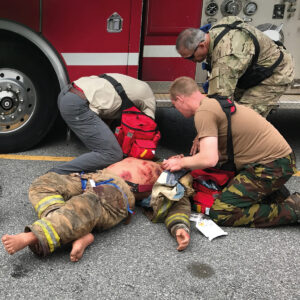
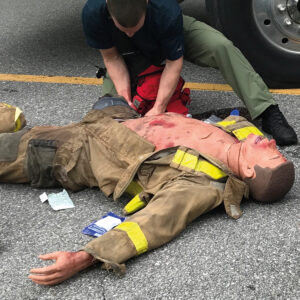
Reviews
There are no reviews yet.